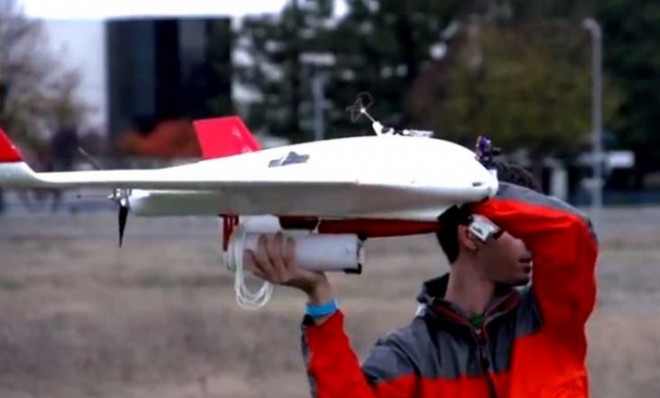VIDEO: Meet your friendly neighborhood burrito-delivering, tiger-saving drones
Relax — not all drones are killers

Largely thanks to President Obama's controversial use of deadly drones to fight terrorism in foreign countries, unmanned aerial vehicles have quite a bad rap. Just last weekend, U.S. drones killed 17 people in Pakistan, and the president's nomination of John Brennan to head the CIA all but ensures that these stealth attacks will continue. But just because drone technology appears most often in the news as part of a lethal counter-terrorism strategy (or as a potential tool for the government to spy on you) doesn't mean you should run screaming in the other direction every time you hear the word "drone."
Behold: Four drones that could be coming to a neighborhood near you after the Federal Aviation Administration lifts the ban on commercial use of this technology in 2015. And in some cases, these drones are already flying the friendly skies.
1. The burrito-delivering drone
The Week
Escape your echo chamber. Get the facts behind the news, plus analysis from multiple perspectives.

Sign up for The Week's Free Newsletters
From our morning news briefing to a weekly Good News Newsletter, get the best of The Week delivered directly to your inbox.
From our morning news briefing to a weekly Good News Newsletter, get the best of The Week delivered directly to your inbox.
You might want to say goodbye to your favorite delivery man — at least if you like to order Mexican food. A San Francisco-based lab called Darwin Aerospace (which happens to be run by the popular food review site Yelp) has successfully test-launched an automatic delivery service that uses GPS-equipped drone to deliver burritos. (The burrito is loaded into a cannister with an attached parachute, and the drone drops it over its target.) The "Burrito Bomber," as it's appropriately called, won't be available for commercial use until meeting FAA approval in 2015, but that doesn't mean you can't watch this promotional video and dream:

2. The tiger-saving drone
When Mother Jones interviewed a World Wildlife Fund spokesman about the unmanned aerial vehicles the organization is deploying to fight poachers, he refused to call them drones — worried that readers might confuse them with the military kind. Well, the WWF vehicles definitely meet the drone definition — but unlike the military kind, they're being used to track and deter illegal poachers, not incinerate them. Thanks to a recent $5 million grant from Google, WWF will soon be expanding their use of tracker-drones to Africa and Asia to protect rhinos, elephants, and tigers. Here's a video of the drones already used in Nepal:
3. The storm-chasing drone
A free daily email with the biggest news stories of the day – and the best features from TheWeek.com
Good news for Americans worried about rogue, leftover military drones: NASA and the National Oceanic and Atmospheric Administration are experimenting with using them to track hurricanes. According to Wired, the former "Global Hawks" spy drones have been equipped with sensors that can track temperature, rainfall, wind speeds, and how strong a hurricane will become. The drones are still in the testing stage (and were not available to capture Hurricane Sandy), but you can check them out here:
4. The package-delivering drone
According to former Wired editor Chris Anderson, FedEx is counting down the days until the FAA lifts the restrictions on drones in commercial airspace so it can start using unmanned aerial vehicles to deliver packages. This means that air delivery for packages would fall from "10 times to two times" the price of sea delivery, Anderson reports. Whether that means tiny drones the size of maple seeds will drop packages at your door someday, well, that remains to be seen:
Dana Liebelson is a reporter for Mother Jones. A graduate of George Washington University, she has worked for a variety of advocacy organizations in the District, including the Project on Government Oversight, International Center for Journalists, Rethink Media, the Reporters Committee for Freedom of the Press, and Change.org. She speaks Mandarin and German and plays violin in the D.C.-based Indie rock band Bellflur.
-
 A running list of the US government figures Donald Trump has pardoned
A running list of the US government figures Donald Trump has pardonedin depth Clearing the slate for his favorite elected officials
-
 Ski town strikers fight rising cost of living
Ski town strikers fight rising cost of livingThe Explainer Telluride is the latest ski resort experiencing an instructor strike
-
 ‘Space is one of the few areas of bipartisan agreement in Washington’
‘Space is one of the few areas of bipartisan agreement in Washington’Instant Opinion Opinion, comment and editorials of the day